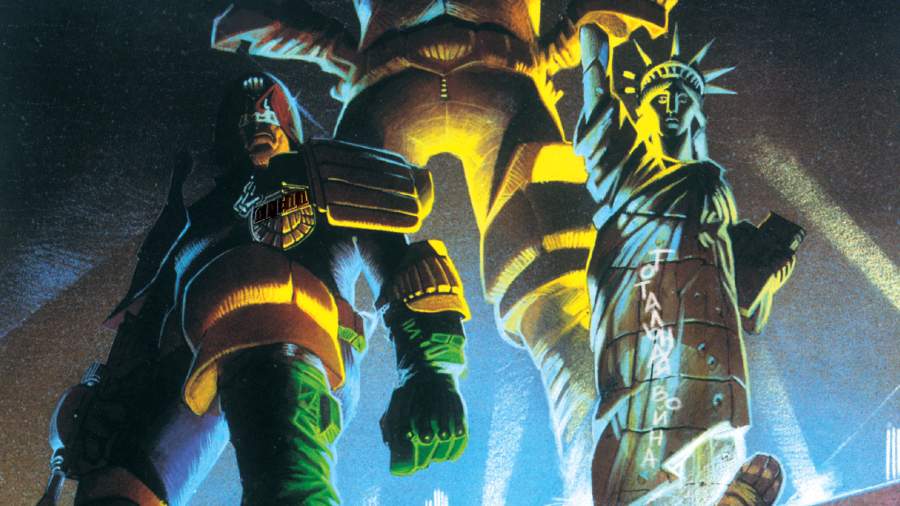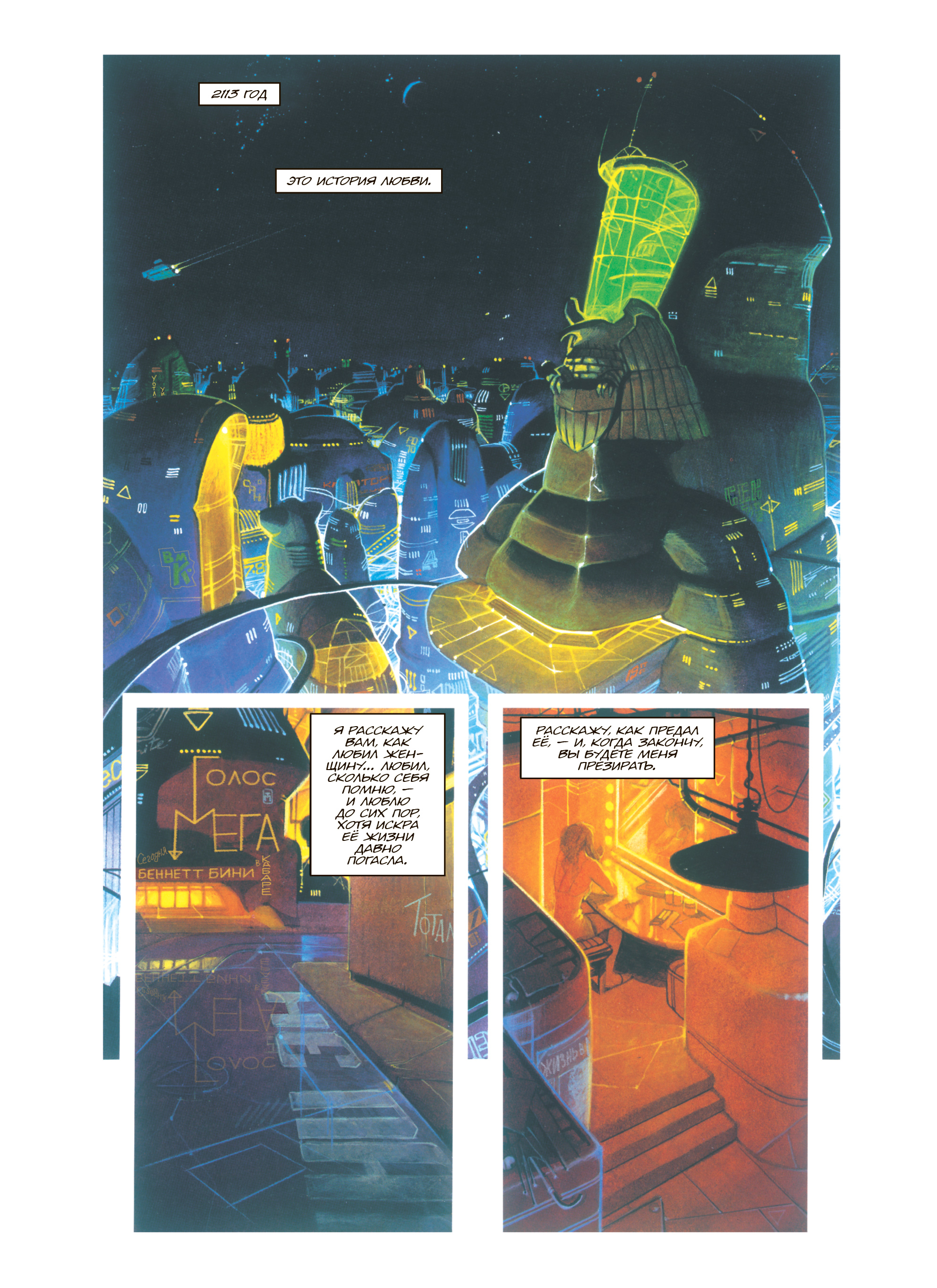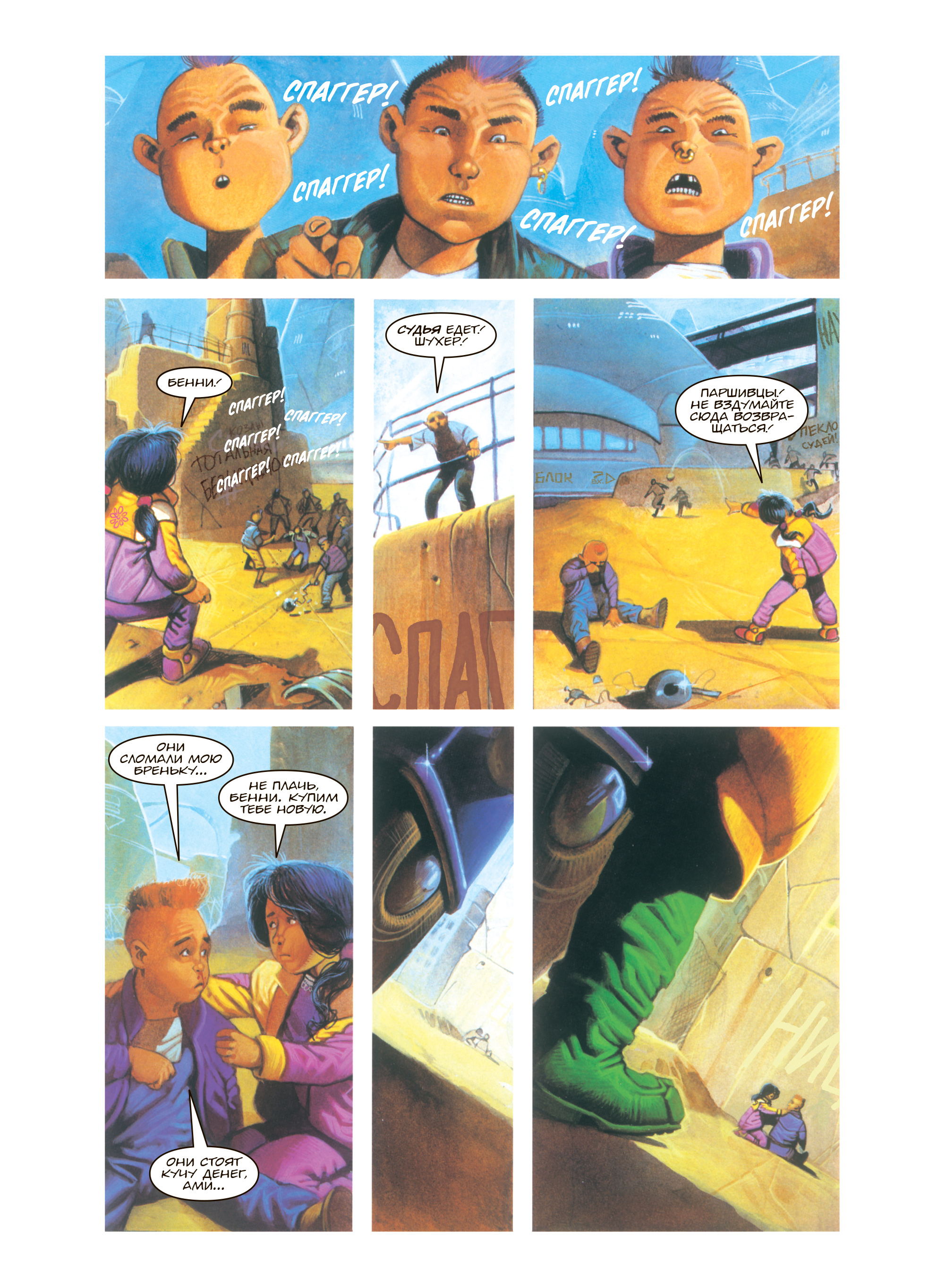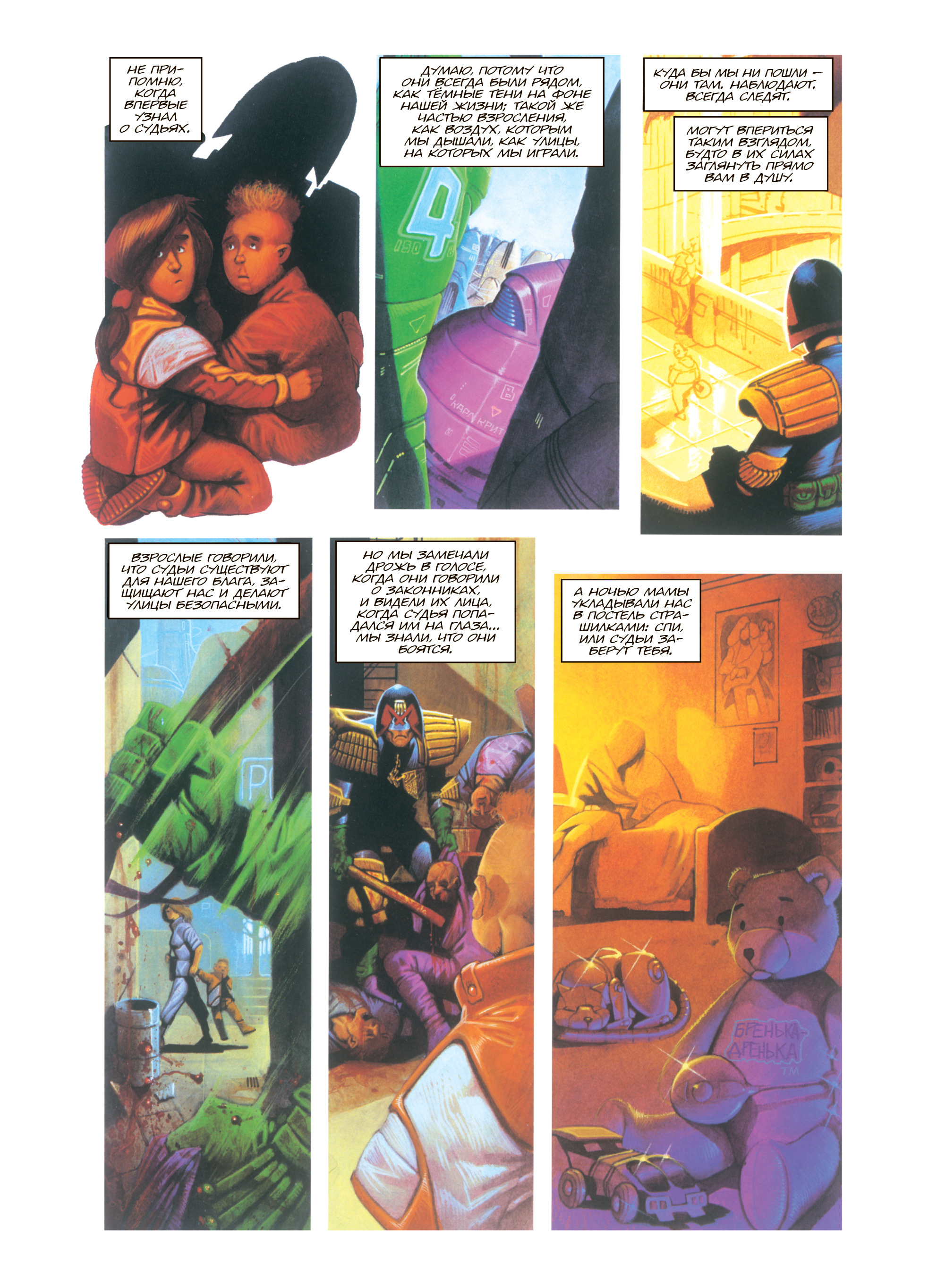He is the law: cult comic about Judge Dredd is being released in Russia

In Russia, the cult comic book of 1990 "Judge Dredd: America" is being published for the first time in Russian. The cycle of stories about the cruel ruler of justice is considered a classic of the genre of dystopia in popular culture. The editorial staff of Izvestia was one of the first to get acquainted with the translation of the Komilfo publishing house and exclusively publish the first few pages of the classic comic.
Who is Judge Joseph Dredd?
Judge Dredd is known in Russia to several generations of people who are fond of Hollywood action movies. In two major film adaptations, which can only be called movie comedies, Dredd was played by Sylvester Stallone (1995) and Karl Urban (2012). In these films, the main character, who is also a bulletproof macho man, invariably speaks in short and harsh phrases. The cynical and somewhat tired view of the world through the eyes of the screen Joseph Dredd was immediately remembered forever. "I am the law," Dredd proclaimed. "I knew they would refuse to surrender," he said phlegmatically, loading the rocket launcher.
At the same time, many viewers did not even suspect that the duo of good fighters had a literary source — a comic book series about a super cop. They still continue to be published — in mid-March, the 478th issue of the monthly about the bloodthirsty ruler of justice appeared: Judge Dredd Megazine #478.
The graphic novel "Judge Dredd: America" is a finished statement by screenwriter John Wagner. He worked on novels, and he also prepared Dredd for the big screen.

"America" raises a layer of the problems of modern States, from civil disobedience to police violence. The book contains three works at once: a 1990 comic strip with two full-fledged sequels: "The Fading Flame" and "The Cadet". Of particular interest is "America", after which both the book and the long-suffering heroine are named, through whose eyes the splendor and poverty of the United States in 2113 are shown.
Despite the fact that the original comic book debuted back in 1990, it has surprisingly retained its relevance and relevance to this day. The story anticipates the internal conflict in the United States, which Kirsten Dunst recently brilliantly showed in The Fall of the Empire in 2024. But there is so much dirt, blood, sex and violence in the literary work about Dredd that no producer would undertake the film adaptation of this particular story arc in the form it was shown on the pages of the book. But how much grace there is in the way Dredd comments on his partner's bullet-riddled neck with the words: "If he survives, he won't sing anymore"! It looks even more spectacular in a comic book than in a movie.
The Judge Dredd comic is coming out in 2025.
The ideas of "America" strongly overlap with the work of Warren Ellis, the author of the cult Transmetropolitan, published in Russia by ABC. Here, the plot is based on the dystopian city of Mega—City-1, in which specially trained supercops, who are also judges, ostentatiously drown in the blood of lovers of democracy and freedom. At the same time, they may change sides, because their sense of justice does not allow them to support lies.

The story of the main character acts as the main counterweight to the totalitarian system in the novel. America craves freedom and democracy at the price of killing judges, and it has to pay a high price for it. It's funny that Mr. Hara, an immigrant father, named her after the land of unlimited possibilities.
In "America," Dredd doesn't even have a major role, he's a character-a function that shows all the imperfections of the United States in an era of gathering chaos. The work captivates with the boldness of the plot and the provocativeness of the artistic style, an experienced lover of super-heroics will surely have his own associations — and not necessarily with the "Killer Joke" that heads all the comic tops of the 20th century. The image of Dredd in the book is close to the Joker, who voiced a simple thesis: "All it takes for a righteous man to turn into a psycho is one really bad day." This is exactly what happens to America Hara, who defies the established order of things, unaware that Joseph Dredd will be on her way at some point.
Against the background of the greatness of the first part of the book, the following ones, "The Fading Flame" and "The Cadet", are rather complimentary. They reveal the plot of the original work of 90 from a new perspective and help to look at the events from the book from a new angle. At the same time, it is pointless to expect any powerful effect from them, literally catharsis, in many ways these are vignettes necessary to decorate the original work. The easiest way is to think of them as cut scenes included in the director's version.

Special praise should be paid to the slang language of the original source, which Comme il Faut for the most part has not lost in literary adaptation. So, the cybernetic bear "Gitter Critter" turned into "Breka-Dreka", and the watchman's scramola cry turned into the familiar "shooher!" to the Russian eye. The only surprise was caused by the translation of the speech of America's father, Mr. Hara, who in the original source chatted in Cockney slang, and in the adaptation turned literally into a Hulk: "The city takes us, we have nothing, we call our daughter America."
However, these are just small things. More importantly, "Judge Dredd: America" will be a great start to immerse yourself in the dystopian world of Mega-City-1, according to the abstract on the back of the comic. Unless, of course, you are already 18 years old.
Переведено сервисом «Яндекс Переводчик»
